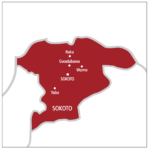When Mrs Aisha Waziri-Umar invited me to the launch of her digital agribusiness hub, I-Produce, I wondered to myself what would she, whom I know to be a high-flying lawyer, have to do with agriculture? But everything would become clear at the occasion that took place within the Dune Centre, Maitama, Abuja, on the penultimate Friday. I only came to know Aisha in the last few years when we both served on the committee put up by the former Borno State Governor, Kashim Shettima, to finish and launch those iconic mega schools that are targeted at orphans and other vulnerable children. Even then I could observe the passion and expertise she brought to the enterprise. It was only later I came to know that, that was her niche, as she had founded the school for the disabled children in Abuja and actually ran it for a number of years. But that’s a story for another day.
The I Produce is actually a hub, a digital platform designed to provide agri-business advisory service. As it was explained at the launch the hub would provide a wide-ranging number of services including access to finance, information on export standards, logistics and supply chain management and virtual training on agri-business opportunities and value addition. There would also be all sorts of information pertaining to the agricultural sector including the latest technology and innovations along the global food value chain.
- Savannah Centre eyes global intellect resource hub
- PODCAST: Jos Killings: What Is Happening Beyond The Curfew
The occasion was a bundle of surprises to me not only because of the calibre of attendance but also for the nuggets of knowledge I gathered from speeches made by the attendees. One of the first surprises was that Otunba Niyi Adebayo, the Minister of Industry, Trade and Investment, who attended in person, came to the occasion an hour or so before most other guests sauntered in. I made a mental note that he is a most unusual public servant who could be relied upon to be punctilious in the conduct of his high office.
There were high level representations from the Central Bank of Nigeria (CBN) and Nigerian Export Promotion Council (NEPC), Association of Pastoral Feeds and the Arewa Youth Agro-Preneurs. There were also virtual goodwill messages from Segun Awolowo, the Executive Director of the NEPC, the former CBN Governor, HH Sanusi Lamido Sanusi as well as Professor John Struthers, the Director of Centre for African Research on Enterprise and Economic Development (CAREED) in the University of the West of Scotland, UK, who is offering the support of his centre to the hub.
The speech made by the minister has been widely reported in the media where he extolled the benefits to be derived from the $1 billion syndicated term loan for Micro, Small and Medium Enterprises (MSMEs). The term loans are available to be accessed by agri-businesses through the Bank of Industry. The representatives of CBN and NEPC spoke a great deal in a similar vein listing billions of naira available to agri-businesses at one-digit interest rate and many other worthwhile interventions. There is even a non-interest window for those interested, which, I suppose, should involve some arrangements on profit sharing. From the various contributions one could understand why this government hold these interventions as some its most remarkable achievements.
No doubt government has been quite visible in financing agri-business. The CBN’s lead in this enterprise has been exceptional, particularly their wide exposure in funding rice production. But I share a nagging feeling, felt also by many others, that these volume of finances are not reaching the majority of our farmers particularly in the northernmost areas where illiteracy and dilapidated infrastructure have made things difficult. This is where most of this country’s farming takes place but today most of the land is lying fallow partly due to lack of the wherewithal and the nefarious activities of bandits and insurgents. Government needs to address this disconnect with those in agri-business in these parts to find more effective ways to reach them.
May be it is this kind of gap that I Produce is meant to fill by providing access to a myriad of financial services and institutions. Aisha referred to this and many other things when she spoke at the occasion. She said she arrived at these efforts through conscious research at her Jere roots in Borno State where she kept a visible presence since 2015 when she was invited to fill a political appointment in the Borno State Government. She found in Jere to her chagrin that farmers in large numbers produce abysmally low yields due to difficulties in getting inputs to add value to their fields and crops. Jere, a low lying field along River Ngadda that flows through Maiduguri, is a rice growing area yet without a single rice mill. It required a lot guts but Aisha went into large scale rice production and is today the owner of the only two rice mills producing in the area.
From my perspectives there is need for more such portals in the North for farmers, particularly the youth, who could be more amenable to these appliances, to latch on to and benefit from what is offered. We need more of the like of Aisha who have wide reach in the banking sector to continue to lend helping hands to our farmers, particularly the youth, with easy access to funds.
 Join Daily Trust WhatsApp Community For Quick Access To News and Happenings Around You.
Join Daily Trust WhatsApp Community For Quick Access To News and Happenings Around You.


